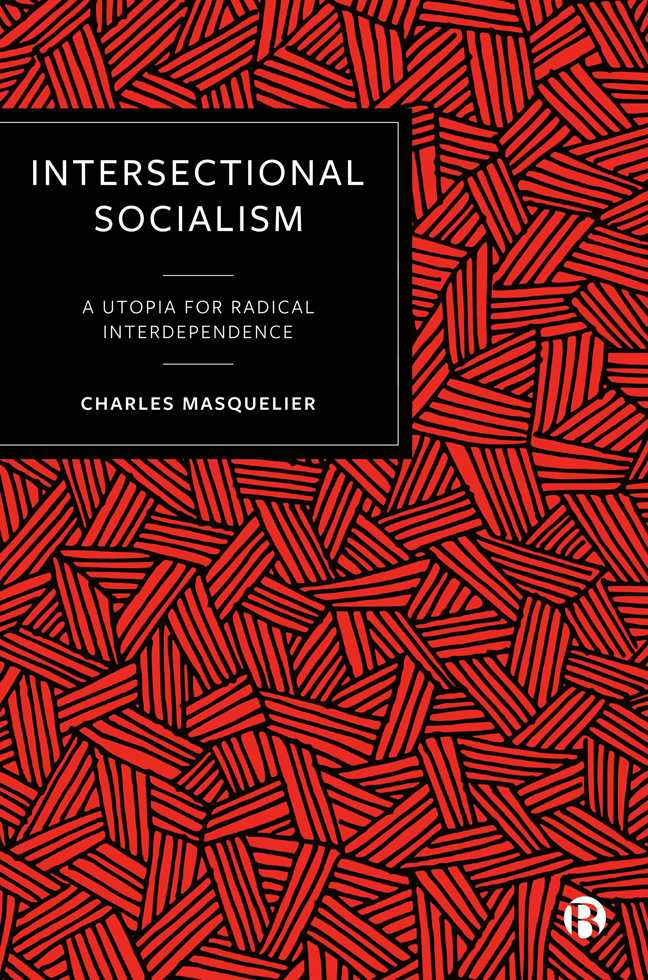Book contents
- Frontmatter
- Dedication
- Contents
- Acknowledgements
- 1 Introduction
- 2 Intersectionality, Pluriversality, and Libertarian Socialism
- 3 Pluriversal Intersectionality and Capitalist Domination
- 4 Pluriversal Emancipation
- 5 Work, Property, and Resource Allocation
- 6 On the ‘Production of Life’ and Labour of Care
- 7 Beyond the Modern Liberal-Capitalist State
- 8 Conclusion
- Notes
- References
- Index
2 - Intersectionality, Pluriversality, and Libertarian Socialism
Published online by Cambridge University Press: 23 January 2024
- Frontmatter
- Dedication
- Contents
- Acknowledgements
- 1 Introduction
- 2 Intersectionality, Pluriversality, and Libertarian Socialism
- 3 Pluriversal Intersectionality and Capitalist Domination
- 4 Pluriversal Emancipation
- 5 Work, Property, and Resource Allocation
- 6 On the ‘Production of Life’ and Labour of Care
- 7 Beyond the Modern Liberal-Capitalist State
- 8 Conclusion
- Notes
- References
- Index
Summary
Introduction
After discrediting the Left's redistributive outlook by dismissing it – often very successfully – as economically irresponsible, the right turned to populism and devoted its attention to the culturally progressive aspect of left-wing thinking. Terms like ‘wokeness’ and ‘culture wars’ are symptomatic of the right's attempts to discredit what remains of progressive thinking in advanced capitalist societies. To understand what led to this state of affairs and where intersectionality stands in it, one must turn to neoliberalism. The latter established itself as a political-economic vision ostensibly compatible with cultural struggles for justice. For example, some neoliberal governments gave same-sex couples the right to marry. Neoliberalism, it seems, tolerates and sometimes even backs cultural struggles for justice, while contesting the value of their economic counterpart. Having successfully discredited redistributive struggles, such a ‘progressive neoliberalism’ (Fraser, 2019) eventually paved the way for a reactionary politics that set out to redress socio-economic injustices by wrapping them up in issues of identity. In a context of acute economic precarity and sharp socio-economic inequalities, for example, migrant others are blamed for the economic deprivation of autochthons. What is more, the latter do not just expect to hold exclusive rights as autochthons. They are also highly critical of any attempts to question their position of privilege, often dismissed as unreasonable, unproductive, and unacceptable instances of ‘wokeism’. Since the establishment of neoliberalism, then, one can observe ‘unproductive battles over economic versus cultural politics’ (Duggan, 2003: xix) which laid the groundwork for a right-wing populism that seeks to resolve this tension by turning cultural struggles into a reactionary form of identity politics.
Contrary to interpretations that equate it with a culture war, I would argue that intersectionality provides an immensely fruitful alternative to the kind of identity politics that have made their way into the political mainstream in many advanced capitalist societies. Intersectionality, it will be shown, does not divide but provides a framework for thinking oppression and emancipation across economic and cultural politics. To be sure, the field of intersectionality studies counts a very broad range of theoretical, methodological, and empirical scholarship. There have also been and continue to be disagreements on what exactly qualifies as intersectionality, what it aims to achieve and how it should be deployed in social research and beyond.
- Type
- Chapter
- Information
- Intersectional SocialismA Utopia for Radical Interdependence, pp. 13 - 36Publisher: Bristol University PressPrint publication year: 2023

